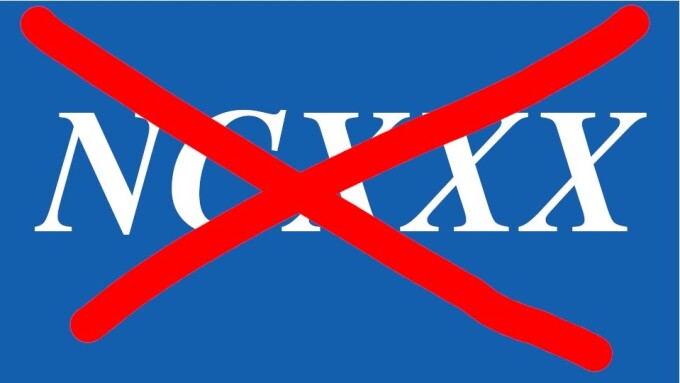TRENTON, N.J. — "Adult entertainment" is on the list of so-called "sin" industries from which New Jersey college student-athletes would be unable to profit if a New Jersey bill is passed allowing them to capitalize on their likenesses.
Student-athletes should be allowed to earn a living, of course.
This ought to be a fairly uncontroversial opinion. Colleges and corporations make billions of dollars from collegiate athletics; coaches and athletic directors are paid millions of dollars to run the programs — in 2017, football or men’s basketball coaches at state universities were the highest-paid state employees in 39 of the 50 states — and television networks rake in enormous cash from advertisers and pay billions for broadcasting rights.
Meanwhile, student-athletes — the lifeblood of the business — only get scholarships that are subject to revocation at any time for a host of infractions, or if they have the temerity to get injured, and what the National Collegiate Athletic Association (NCAA) website describes as “opportunities and experience.” And they're housed and fed.
"Opportunities and experience" is an easy, innocuously positive thing for the entities raking in those billions to point to when the subject of paying student-athletes comes up. However, high-minded ideals — in this case, the idea that amateur sports should remain pure and untainted by financial consideration — are convenient strawman arguments often deployed when the billions pouring in to their pockets are threatened.
Thus, an effort began to find a way to pay athletes while removing that threat.
Some states have toyed with the idea of introducing legislation prohibiting state schools from interfering with or punishing players for capitalizing on their names, images and likenesses. Students would be able to independently make money off of their athletic exploits, and the schools wouldn't have to give up a penny of their profits.
In September, California became the first state to adopt such legislation when Gov. Gavin Newsom signed SB 206, the Fair Pay to Play Act, into law. Student athletes in California can now sell their names, their images and their likenesses without fear of punishment by the NCAA. They can sell their autographs, accept endorsements, and even hire agents, all of which the NCAA currently prohibits.
Since SB 206’s passage, several states, including the Carolinas, Florida, Ohio, Georgia, Colorado, Washington, Pennsylvania, Minnesota and New York, as well as the U.S. Congress, have legislation being considered or already in the works. The first state to actually introduce a bill was New Jersey; this morning, the New Jersey Fair Play Act was put on the floor by Democratic state senators Joe Lagana and Sandra B. Cunningham, as reported by insidernj.com.
So how is this relevant to the adult industry? The New Jersey bill, while offering similar protections for student-athletes that SB 206 does, includes language limiting the industries from which students could potentially profit. The industries named include the usual assortment of social boogeymen, such as alcohol, gambling, tobacco and e-smoking products, pharmaceuticals, controlled dangerous substances, firearms and “adult entertainment.” The California law contains no such restrictions.
What is the purpose of these restrictions? Is it to protect minors? If so, they're redundant. A beer company can’t use a minor to sell its product regardless of whether that minor plays football for Ohio State. Underage students are already protected by existing laws. So why include language at all that restricts one class of people — in this case, student-athletes — from profiting from things that anyone else of the proper legal age is free to profit from?
It doesn’t take a Herculean leap of logic to see the moral hysteria involved.
The inclusion of adult entertainment on the prohibited list is particularly galling. While there have been attempts, covered extensively by XBIZ, to demonize the adult industry as being akin to the tobacco, firearms, or even the illegal drug trade in its supposed contribution to the decay of social order, no reputable expert on the subject takes these ideas seriously. Aside from the odd wunderkind, most college students are legal adults. If they want to pose nude, accept an endorsement from a production company or pleasure product manufacturer, sell their autograph at adult expos, or any other of the hundreds of ways in which the adult industry could benefit them, and simultaneously profit from being associated with their likeness, why shouldn’t they be allowed to? There is no logical answer to that question beyond the default stigma that for some always exists: "porn is icky."
This is ridiculous. Legal sexual behavior between consenting adults should not be restricted in government legislation, especially not to interfere with otherwise legal commercial transactions.
XBIZ has reached out to the offices of senators Cunningham and Lagana for a clarification on what would define “adult entertainment” in the context of the bill, and why the restriction of legal behavior is included in a proposed law meant to expand opportunities for an exploited group of individuals. As of publication they have not responded. The full text of the bill has also not as yet been released; ambiguity as to whether the bill acts to protect students from punishment from schools themselves, from the NCAA as a governing body, or from both (as SB 206 does) should become clearer once it has been.
Read the insidernj.com article here.









